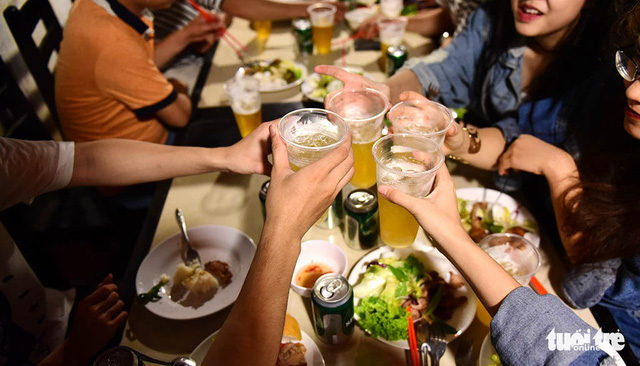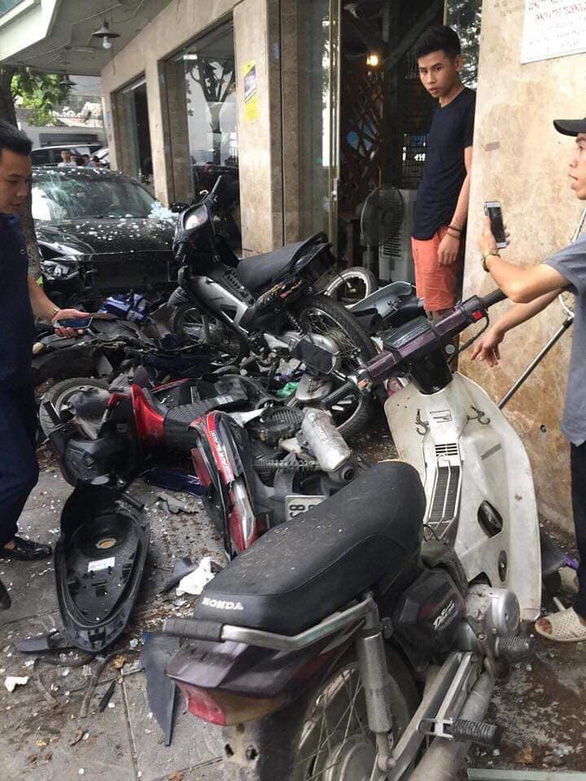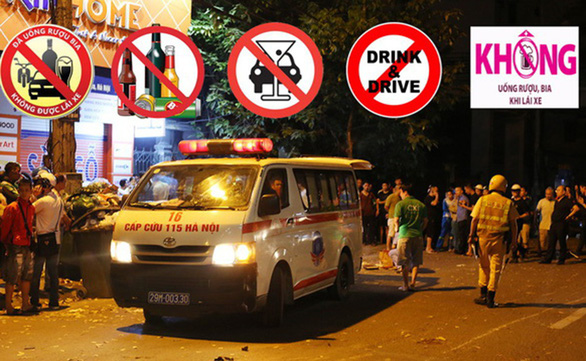A draft law on alcohol-related harm prevention scheduled for submission to Vietnam’s lawmaking National Assembly later this month may do little to help resolve the problem, health officials argued at a conference held by the Ministry of Health on Monday afternoon.
Vietnam’s consumption of alcoholic drinks is growing at a rate of 15 percent per year, reaching 4.7 billion liters of beer and 350 million liters of wine and liquor in 2018.
Assume that these consumed drinks fetched US$1 per liter, Vietnamese spent as much as $5 billion drinking beer and wine last year, Vu Thi Minh Hanh, deputy head of the Health Strategy and Policy Institute, said at the conference in Hanoi.
Cost aside, Vietnamese consumers were also putting themselves at risk, as the risk that drivers may get into an accident climbs 40 times after they drink two cans of beer or two glasses of wine, Hanh added.
Alcohol-related harm is therefore expected to cost Vietnamese around $450 per person per year, a figure only recorded in countries with per capita income ten times higher than Vietnam’s.
|
|
| A scene of a DUI motorbike accident in Vietnam on May 6, 2019. Photo: D.N.Q / Tuoi Tre |
When it comes to tackling alcohol-related harm, the proposal of banning alcohol sale is usually rejected, with opponents saying it would hurt the country’s tax revenue from beer and wine manufacturers and sellers.
“Those objectors may not know that traffic accidents alone cause damage of $1 billion a year, while alcohol businesses only contribute $1.2 billion in taxes to the state budget,” Hanh said.
She added that alcohol consumption may also result in many consequences for the national economy, social order, and workforce health.
The draft law on alcohol-related harm prevention, which will be presented for approval to the country’s legislature on May 23, just fails to adequately take these issues into consideration, according to many attendees at Monday’s conference.
Among them was Nguyen Huy Quang, head of the health ministry’s Department of Legal Affairs, who pointed out four drawbacks of the bill.
According to the draft law, it is legal to sell alcoholic drinks on the Internet, which Quang said may lead to other consequences, including underage drinking, as it will be challenging for administrators to control the age of online buyers.
Quang added that the draft law does not regulate an extra tax on alcohol consumption, leaving alcoholic drinks prices in Vietnam among the cheapest in the world.
Vietnam’s beer prices are VND5,000-10,000 ($0.22-0.43) per bottle, cheaper than Laos, and the 35 percent tax on alcohol retail prices just pales in comparison with the 85 percent rate in Thailand, according to the health ministry official.
|
|
| A scene of a DUI traffic accident, killing one sanitation worker, on Lang Street, Hanoi on April 22, 2019. Photo: Chi Tue / Tuoi Tre |
A previous version of the draft law proposed restricting the availability of beer and wine sales in Vietnam, but such a proposition was excluded from the current bill, which means “Vietnam will remain to be one of the few countries allowing the sale of drinks anywhere and anytime,” Quang underlined.
The last drawback, he added, is that the bill fails to put forward stricter penalties on drunk drivers, at a time when the current punishments are considered too lenient, which fails to discourage DUI.
Quang suggested tougher measures, such as permanently revoking the driver’s licenses of violators or imposing imprisonment sentences on those caught drunk driving, “even though they have yet to cause any accident.”
Like us on Facebook or follow us on Twitter to get the latest news about Vietnam!






















































